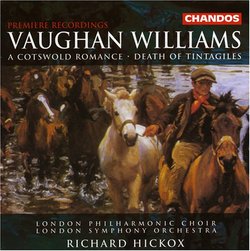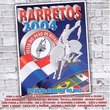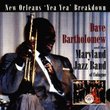One of the best VW recordings on the market
R. Evans | Montgomery AL | 10/01/2005
(5 out of 5 stars)
"I am a huge fan of the music of Ralph Vaughan Williams and have most of his music on CD, often in multiple performances. This recording has quickly become one of my favorites; the music and words are alternately rousing, funny, and moving, and in all cases it is immensely memorable. There are some really splendid "tunes" here (as VW himself might have said). Oddly enough, I prefer this later suite to the earlier full-length opera itself; the best moments of the longer work are distilled here, and the late revisions are (I think) improvements over the original. I love this CD so much that I bought two copies -- one for home, one for traveling. The little-known "Death of Tintagiles" is an exceptionally moving piece by Vaughan Williams -- incredibly dark and brooding. I can't understand why this piece is not more often recorded or more widely performed. All in all, this is a VW CD to be treasured by anyone who values the man's music and indeed by anyone who loves music in general."
Vaughan Williams Rarities
D. A Wend | Buffalo Grove, IL USA | 12/29/2008
(5 out of 5 stars)
"A Cotswold Romance is an arrangement from the ballad-opera Hugh the Drover (performed in 1924) made by Maurice Jacobson in collaboration with Vaughan Williams. The impetus for this cantata version of the opera was that concert versions did not work very well without the stage action. So the music was arranged for chorus and soloists and was first performed in 1951. It is hard to think of a more engaging work of Vaughan Williams so it is surprising that this is the premiere recording. The cantata follows the action of the opera and begins with a rousing opening (Men of Cotsall) that sets the atmosphere of the entire work. Each section tells a part of the story. Hugh meets Mary who is to marry John the Butcher but Hugh so captivates her that he ends up fighting John for her hand. The Fight and its Sequel was altered from the opera to use a divided chorus to represent the combatants. Hugh wins the fight but is mistaken for a French spy and is put in stocks. Mary remains with Hugh even when her father, the Constable, tries to take her away. In the last section (Freedom at Last) Hugh is recognized by his drover friends and released.
The cantata has the quality of a musical in the dialogue numbers like Love at First Sight where the music is light and descriptive. It receives a splendid performance here by the London Philharmonic Chorus, Rosa Manion (as Mary), Thomas Randle (as Hugh) and Matthew Brook.
The Death of Tintagiles, also a premiere recording, was written by Vaughan Williams for a play by Maurice Maeterlinck in 1912. The play concerns a child named Tintagiles and his suspicious grandmother in the setting of a dark and forbidding castle. The music is gloomy and reminded me of Sibelius whose 4th Symphony had been played in London around the time Vaughan Williams was composing this music. The music remains rather brooding for the entire 14 minutes of the work and drifts away quietly.
The performance by Richard Hickox and the London Symphony Orchestra is magnificent and is a recording not to be missed by anyone interested in the music of Ralph Vaughan Williams. This recording also underscores the great loss the music word sustained with the death of Richard Hickox in November.
"


 Track Listings (17) - Disc #1
Track Listings (17) - Disc #1
